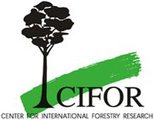The Center for International Forestry Research (CIFOR) released an analysis of how Voluntary Partnership Agreements (VPAs) can be integrated into national markets based on examples from other sectors.
In particular, the report, 'Policy options for improved integration of domestic timber markets under the voluntary partnership agreement (VPA) regime - Lessons from formalization case studies,' presents cases on the formalization process from mining, fisheries, non-timber forest products (NTFPs), and land sectors.
 September 2014: The Center for International Forestry Research (CIFOR) released an analysis of how Voluntary Partnership Agreements (VPAs) can be integrated into national markets based on examples from other sectors. In particular, the report, ‘Policy options for improved integration of domestic timber markets under the voluntary partnership agreement (VPA) regime – Lessons from formalization case studies,’ presents cases on the formalization process from mining, fisheries, non-timber forest products (NTFPs), and land sectors.
September 2014: The Center for International Forestry Research (CIFOR) released an analysis of how Voluntary Partnership Agreements (VPAs) can be integrated into national markets based on examples from other sectors. In particular, the report, ‘Policy options for improved integration of domestic timber markets under the voluntary partnership agreement (VPA) regime – Lessons from formalization case studies,’ presents cases on the formalization process from mining, fisheries, non-timber forest products (NTFPs), and land sectors.
The report finds that formalization has the potential to deliver benefits including broad access to information on ownership, use, and trade; clarity in tenure and use rights; and increased flow of benefits to local communities. Formalization can also increase the sustainability of forest management, increase regulation of employment, and strengthen law enforcement.
The report notes, however, that if formalization isn’t conducted correctly, rights can be eroded, a culture of evasion and criminalization can be developed, and elite capture and marginalization can occur. CIFOR is part of the CGIAR Consortium. [Publication: Policy options for improved integration of domestic timber markets under the voluntary partnership agreement (VPA) regime – Lessons from formalization case studies]